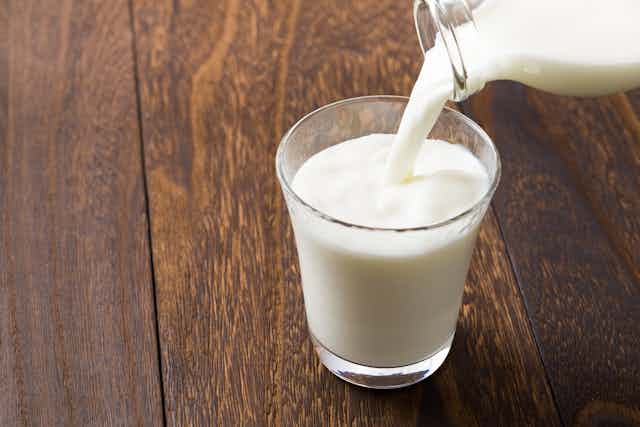The news media love nutrition stories. There is something appealing about the idea of a single foodstuff that can prevent or cure a disease. Just recently this foodstuff was milk. Articles in The Sun, the Daily Mirror and the Daily Mail claimed that drinking a glass of milk in the morning can slash your risk of type 2 diabetes, but is this what the study that the stories came from actually said?
The research, conducted by scientists in Canada, was a small randomised controlled trial that looked at the effects of milk protein (whey and casein) on satiety (feeling of fullness) and blood glucose levels over the course of a few hours. Although the researchers mention type 2 diabetes in their paper, saying that reducing blood glucose spikes after a meal has “relevance for type 2 diabetes”, they did not study the impact of drinking milk on the risk of developing diabetes. Type 2 diabetes takes years to develop, not hours.
The researchers recruited 32 young, healthy participants to take part in their study. The participants fasted overnight and were given a breakfast of cereal and either water or a drink based on skimmed milk with different amounts of proteins. Five different combinations of water and milk with different amounts of the proteins casein and whey were consumed by the participants, a week apart.
The study was a crossover design, which means that each participant was randomly allocated to each of the five combinations over a five-week period.
The energy provided by the breakfast was a typical size, close to the number of calories recommended by Public Health England.
The participants’ appetite and blood glucose were measured before and after breakfast. Two hours after breakfast, they were given pizza and told to eat until they were “comfortably full”. Appetite and blood glucose were measured for up to an hour after the pizza meal.
The results suggest that consuming milk protein with a meal slows down the release of glucose into the blood, but it makes no difference to appetite over a two-hour period. However, the whey protein concentrate reduced appetite after the second meal, compared with skimmed milk.

So what do these results mean? Well, from a study that fed cereal and pizza all within three hours, more protein – especially whey – resulted in slightly lower glucose and hunger levels in healthy people. But it tells us nothing about a typical eating pattern where meals are usually four to six hours apart. Also, the researchers didn’t explore the effect of their protein-boosted milk on appetite hormones or on measurable health outcomes, such as weight loss.
Less click-bait science
The researchers make no claims that a glass of milk at breakfast can cut the risk of developing type 2 diabetes in their paper, so where did this claim come from?
Although news media can overplay research findings, they must get their ideas from somewhere. In this case, the press release on the journal publisher’s website stated that “a change in breakfast routine may provide benefits for the management of type 2 diabetes”, even though the study only included healthy young adults who did not have diabetes.
The initial media coverage about a glass of milk a day helping to “slash your risk” of developing type 2 diabetes, was then cited by the researchers’ university press office. Although they did not specifically repeat the claims of the initial media stories, no correction was offered either, possibly leading to more breathless coverage of the story.
It is still not entirely clear where the direct link of milk preventing diabetes came from, but it highlights the issue of how science is reported in the media. Responsible science and health communication need scientists, universities and the media to responsibly report the reality of the research and not just produce soundbites that attract clicks.
More on evidence-based articles about diets:

